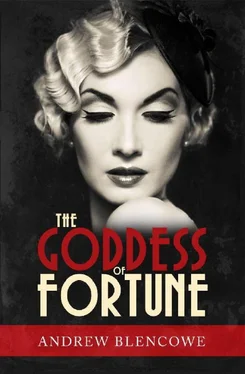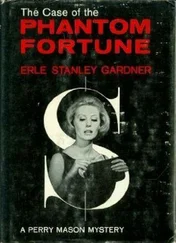Nasherton listened pensively; he had the gift of quiet. In some ways an odd man—just moments ago carousing with two of the Reich’s finest ladies, and now he had smoothly shifted gears and was giving Albert his complete attention.
“I agree, but what on Earth can we possibly do?”
Albert explained that the thinking in Germany—meaning what Albert and some of the senior military types suspected—was that the biggest obstacle to an immediate cessation of all hostilities between Germany and England was Churchill. With Churchill gone, progress could be made; a peace could easily be brokered, the Empire saved, and Germany could get on with the business at hand, which was the annihilation of the hated Bolsheviks , and the final stabilization of Central Europe.
Nasherton stood and walked to the window. He looked out over the lake to the lights of Avian and then to the mountains in France—in spite of it being September, tiny swatches of last winter’s snow were still visible on the highest peaks.
He turned to Albert.
“Of course, I completely agree. How could I not agree? Winston is rum, he’s always been rum, always will be rum. Just look at the ’15 disaster in the Dardanelles. Last year, God only knows why we didn’t get Halifax. Churchill is as brave as a bulldog, but with about the same amount of brains. (Albert, have you ever noticed how Winston actually looks a lot like a bulldog? Of a certain bastard line, a miscegenate line. Have you ever noticed that?) And he deludes himself that he has the Yanks in his pocket—he’s in for a rude awaking there; that is for certain. Actually, Albert, it just may be possible to get rid of Winston—just kick him up stairs somewhere—just as he himself did to poor old David Windsor. As for David, well his only problem—his only weakness—is that he loves to have that woman’s mouth over his you-know-what. But nevertheless, how in God’s name did the King of England fall for that Baltimore tart, a blind man could see she was a slut of the worst sort.”
Albert smiled thinly, but only to be polite.
Albert had heard that the former king loved Wallis Simpson’s attention, and—from a different source—that she was renowned throughout Europe as being without equal at being able to get the dead to rise to life again. It was said she had tricks with her mouth for her most prestigious lovers, tricks she had learned before her marriage to Mr. Simpson when she worked in some of the very finest brothels in Shanghai.
Nasherton went on, “And Winston is far too friendly with the frogs—damn French had done little or nothing for England, simply whine all the time. Look at this total rout three months back at Dunkirk—what a total cock up.”
“But, be sure Albert; we’d have to play our cards very shrewdly—a little too early and one or both of us find ourselves swinging from the end of a rope—remember ‘treason’ is often defined as ‘premature truth,’ so timing is of the essence.”
Albert agreed.
Nasherton returned to the PM,
“It never ceases to amaze me that Winston has the gall to spout the nonsense he does. In reality, he is the opposite of what the press and the cinema newsreels portray. Truth be told, he is a bully and he becomes a violent and bitter bully when drunk, which essentially means any time after two in the afternoon. And his friends are so ill-chosen. Add to this that he is constantly in debt—he does not have a bean to his name.”
Nasherton then expounded on the wisdom of a coalition, possible with Halifax as the new PM. On and on the two men planned and plotted.
After an hour of extremely useful conversation, Nasherton suggested a detailed plan of campaign.
“Well that’s damn well done it—I think we two have done a fine job of reshaping the map of Europe here in quiet Vevey this evening.”
Albert fell silent but thought Nasherton was not overstating the case.
Nasherton said, “I always find that playing Bismarck makes me so extremely randy—no chance of calling back those two Berlin sweeties, is there Albert?”
Albert simply smiled, and lifted the telephone receiver. Nasherton couldn’t quite make out the instructions, but his curiosity was satisfied five minutes later when four exquisite Japanese young ladies quietly glided in. They were four of the most beautiful women he had ever seen. All in the Fall/Winter ’41 Chanel. The four were all extremely quiet and moved as if any sound was an insult to their hosts. Only later did Nasherton learn that their classic geisha training forbad them from talking while they walked—they could only speak when stationary.
It was clear from their carriage and demureness that they were very different from white women—all four affected a shyness (and perhaps they truly were shy?). They all looked like models from Paris, but with soft almond eyes and the most delicate soft skin Nasherton had ever seen—their skin seemed to have no pores. They varied in height tremendously—the tallest, in heels, was taller than Nasherton, who was a good six-foot, while the shortest, even in heels was only of modest height.
What both men noticed was the four girls were already excited. This was to be expected; whereas men are excited simply by visual physical beauty, women are far more sophisticated in this area—power, and the confidence to wield that power are what excite all women. In fact, the nipples on the short one with the very large 33EE bust were already boldly standing forth even through her Chanel jacket, not just minor bumps that could be occasionally glimpsed for a second in a perfect light by a timid, blinking schoolboy, but rather two hard pebbles proudly standing clear for everyone to see.
Nasherton was an old hand at this; he had handled—“entertained” was his euphemism—four girls simultaneously on a number of occasions; in Paris as well as in Capri. Paris had been disappointing, and Capri was as bad, for in both cases the white girls clearly had no interest and were simply watching the clock; if whores could only realize that the way to a men’s heart is though his trousers—an investment of just a few weeks of carefully concocted amorous attention could easily lead to a very expensive divorce in a year or two, but most working girls only wanted to leave they second they were paid.
Nasherton thought these Japanese girls looked different. Time would tell.
“Oh my, Albert, you have truly outdone yourself. I thought the two German starlets were outstanding, but I have never seen women such as these. How on earth did you get hold of them?”
Before Albert could answer there was a polite knock on the door.
Albert opened the outer door of the suite. The Swiss waiter from the restaurant on the ground floor rolled in a table covered with a starched white linen tablecloth. On the table were four servings of the house’s specialty—Vevey chocolate cake.
Also on the cart in an ice bucket was a bottle of Dom Pérignon 1921. Nasherton whistled, “Oh God, a ’21; that’s got to be one of the finest years ever.”
Albert agreed.
Ever the connoisseur, Nasherton explained the importance of the 1921 vintage to the girls, who looked to him like they were dutiful school girls cramming for an important examination. Nasherton himself took a sip, and confirmed the glorious bouquet of the ’21—the vanilla and sandalwood. But Nasherton did not linger, he—like Albert—realized the goal was to relax the young ladies to make them all the more excited, and all the more pliable.
Читать дальше













